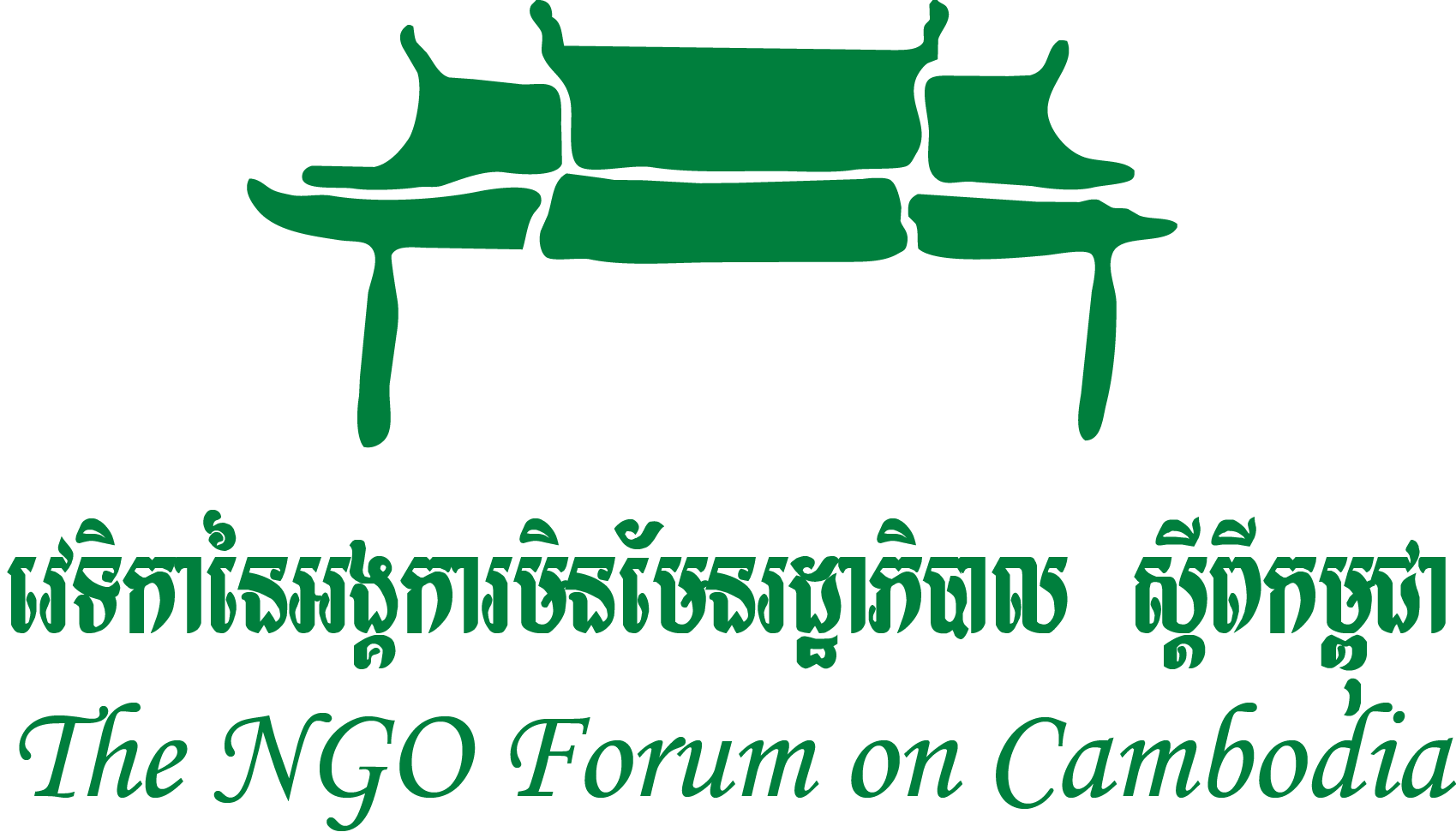[:en]Official Summit Joint Statement Suggestions of People from the Mekong River Basin to the 3rd MRC Summit[:]
- ngofmail
- Apr 2, 2018
- 3 min read
<:en>

The NGO Forum on Cambodia and the members of River Coalition of Cambodia (RCC) officially presented the joint statement of the people Mekong Basin to Dr. Pham Tuan Phan, CEO of Mekong River Commission Secretariat during the MRC International Conference of 3rd MRC Summit which held on April 02, 2018 in Siem Reap Province, Cambodia. The CSO joint statement was issued and submitted to the Mekong River Commission to encourage the leaders of Mekong countries to consider to include additional of 5 key topics were: 1) fisheries and the Mekong River Dolphins 2) effects and solutions of the development of large-scale dams on the main character of the river 3) to enforce the rule of law Principles and rules set forth in the Agreement, the Commission Mekong 1995. 4) Set up procedures and mechanisms for addressing the impacts resulting from development projects on water resources and natural resources in the region, and 5) the maintenance of rain forests, steep area of the Mekong River, the main source of water that can guarantee sustainable water use for the local population Nuke the entire Mekong into the agenda of this such important summit.
The position of the Civil Society Organizations, we are together with dam affected communities working on water gover¬nance across the country, requested the Mekong country’s governments and the Mekong River Commission (MRC) to ad¬dress the following concerns and demands: • The development of national power development plan should necessarily engage public, both females and males of all ages especially affected communities, in a meaningful consultation process to ensure the plan will not make any negative impacts on the environment, natural resources and the well-being of local people. We have acknowledged the need for electricity to economic development in our country and the region, however, the plans should prioritize meeting local people’s energy needs, not generating electricity surplus for export. The plans should be designed to phase in renewable energy (solar and wind) and manage energy efficiency measures. • The Mekong country’s governments should disclose relevant information and supporting documents related to the pro¬posed Mekong Mainstream Hydro power Dam and should ensure that affected community members and other relevant stakeholders can effectively and fully participate in consultations and the decision-making process. • Hydro power dam project information, including in national languages, should be available in the public domain or in MRC website to ensure the public can access to the information. • The space for affected communities and CSOs in the consultation should be expanded particularly for those who are working directly with dam affected communities and provide adequate time for them to work and comment on proposed project. • Decision making on hydropower project should not be made on a project by project basis ignoring cumulative and basin wide impacts. It should be ensured that the finding of Council Study and other basin-wide studies, which provide assessment of the losses and trade-offs inherent in these projects, meaningfully inform decisions on individual hydropower dam projects. • The Mekong country’s governments should find other energy options which are not destructive to social and the environment. The renewable energy such as solar and wind energy should be highly considered and integrated into Energy Development Plan because those energy alternatives are perfectly suitable solutions for our country and the region. We urge regional governments to prioritize introduction of renewable and decentralized electricity technologies that are increasingly available and cost-competitive, with¬out the harmful social and environmental impacts of large-scale hydropower dams. • The Mekong country’s governments should provide the legislation and commitment to an ecosystem approach to fisheries management (EAFM) for maintaining sustainable fisheries and protecting key habitats and spawning areas. • The governments should also consider demand-side management and energy efficiency measures in their energy development plans. • The Mekong country’s governments should consider and increase budget for preserving Mekong Forestry Watershed Areas which are the main water sources to ensure of sustainable water using in the Mekong Region.
<:>




